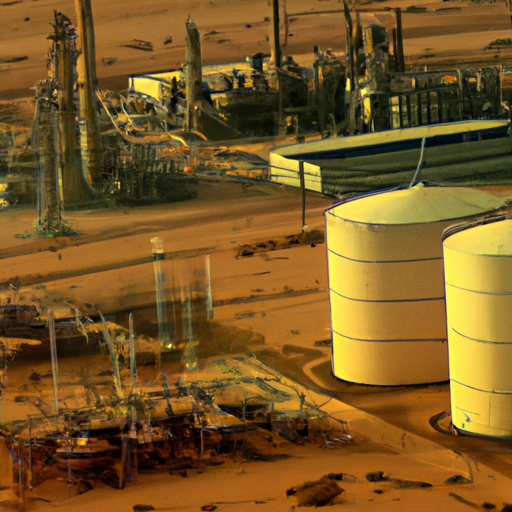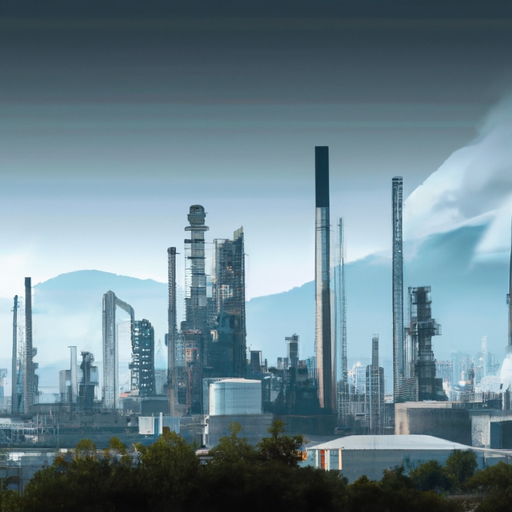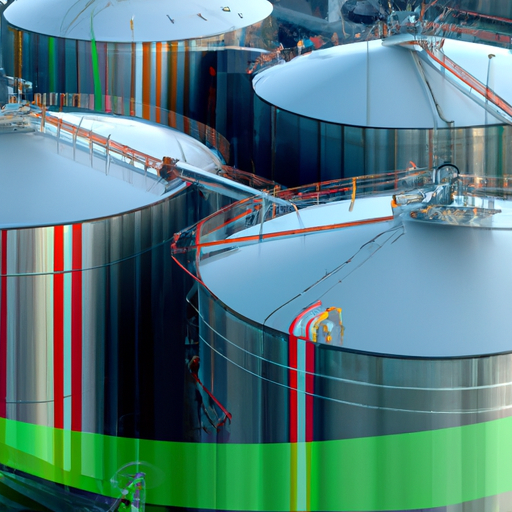The Impact of Petrochemical Companies on the Middle East Economy

Petrochemical companies have played a significant role in shaping the economy of the Middle East. These companies, which produce chemicals and fuels from petroleum, have been a major source of revenue and employment for the region. The Middle East is home to some of the largest petrochemical companies in the world, and their impact on the economy has been both positive and negative.
The history of petrochemical companies in the Middle East dates back to the early 20th century when the region’s vast oil reserves were discovered. The first petrochemical plant was established in Bahrain in 1931, and since then, the industry has grown exponentially. The discovery of oil and the subsequent establishment of petrochemical companies have transformed the economies of countries like Saudi Arabia, Kuwait, Qatar, and the United Arab Emirates.
One of the most significant impacts of petrochemical companies on the Middle East economy has been the creation of jobs. These companies require a large workforce to operate and maintain their facilities, and they have provided employment opportunities for thousands of people in the region. This has not only reduced unemployment rates but has also improved the standard of living for many families. In countries like Saudi Arabia, where the oil and petrochemical industry is the main source of income, these companies have played a crucial role in reducing poverty and improving the overall economy.
Moreover, petrochemical companies have also contributed significantly to the GDP of Middle Eastern countries. The revenue generated from the production and export of petrochemical products has been a major source of income for governments in the region. This has allowed them to invest in infrastructure, education, and healthcare, which has further boosted the economy. In fact, the petrochemical industry accounts for a significant portion of the GDP in countries like Saudi Arabia, Iran, and Qatar.
However, the reliance on petrochemical companies has also had its drawbacks. The fluctuation of oil prices in the global market has had a direct impact on the economies of Middle Eastern countries. When oil prices are high, these countries experience economic growth, but when prices drop, their economies suffer. This has led to a lack of diversification in the economy, making it vulnerable to external factors. Moreover, the heavy reliance on petrochemical companies has also hindered the growth of other industries in the region, leading to an imbalance in the economy.
Another issue that has been associated with petrochemical companies in the Middle East is environmental degradation. The production and use of petrochemical products have contributed to air and water pollution, which has had a negative impact on the environment and public health. The region has also faced criticism for its high carbon emissions, which have contributed to global warming. However, in recent years, many petrochemical companies have taken steps to reduce their carbon footprint and invest in more sustainable practices.
In conclusion, petrochemical companies have had a significant impact on the economy of the Middle East. They have provided employment opportunities, contributed to the GDP, and transformed the region into a major player in the global petrochemical market. However, their heavy reliance on this industry has also made them vulnerable to external factors and hindered the growth of other industries. Moving forward, it is essential for Middle Eastern countries to diversify their economies and invest in sustainable practices to reduce their dependence on petrochemical companies and ensure long-term economic stability.
Sustainability Practices in Petrochemical Companies in the Middle East
Petrochemical companies have played a significant role in the economic growth and development of the Middle East. These companies, which produce chemicals and fuels from petroleum and natural gas, have been a major source of revenue for countries in the region. However, with the increasing global concern for sustainability, these companies have faced pressure to adopt more environmentally friendly practices.
The Middle East is home to some of the largest petrochemical companies in the world, such as Saudi Basic Industries Corporation (SABIC) and Qatar Petroleum. These companies have a long history of contributing to the region’s economic prosperity, but they have also been criticized for their impact on the environment. In recent years, there has been a growing awareness of the need for sustainable practices in the petrochemical industry, and companies in the Middle East have started to take steps towards this goal.
One of the main sustainability challenges faced by petrochemical companies in the Middle East is the high energy consumption and carbon emissions associated with their operations. The production of chemicals and fuels from petroleum and natural gas is a highly energy-intensive process, and this has a significant impact on the environment. To address this issue, many companies have started to invest in renewable energy sources, such as solar and wind power, to reduce their carbon footprint. For example, SABIC has set a target to generate 50% of its energy needs from renewable sources by 2025.
Another area of concern for petrochemical companies in the Middle East is water usage. The production of chemicals and fuels requires large amounts of water, and this can put a strain on the already limited water resources in the region. To address this issue, companies have implemented various water conservation measures, such as recycling and reusing water in their operations. For instance, Qatar Petroleum has invested in a state-of-the-art water treatment plant that recycles and reuses water for its operations, reducing its reliance on freshwater sources.
In addition to environmental concerns, petrochemical companies in the Middle East have also faced criticism for their impact on local communities. The extraction and processing of petroleum and natural gas can have adverse effects on the health and well-being of nearby communities. To address this issue, companies have implemented community engagement programs and initiatives to improve the quality of life for those living near their facilities. For example, SABIC has launched various social responsibility programs, including healthcare and education initiatives, to support the communities in which it operates.
Furthermore, petrochemical companies in the Middle East have also started to invest in research and development to find more sustainable ways of producing chemicals and fuels. This includes exploring alternative feedstocks, such as biomass and waste, to reduce their reliance on fossil fuels. Companies have also invested in developing more efficient and environmentally friendly production processes. For instance, Saudi Aramco has developed a technology that converts carbon dioxide emissions into useful chemicals, reducing its carbon footprint and creating a circular economy.
In conclusion, petrochemical companies in the Middle East have made significant strides towards adopting more sustainable practices in recent years. These companies have recognized the need to balance economic growth with environmental and social responsibility. While there is still room for improvement, the efforts made by these companies are a step in the right direction towards a more sustainable future for the region and the world. With continued investment in renewable energy, water conservation, community engagement, and research and development, petrochemical companies in the Middle East can lead the way in promoting sustainability in the industry.




